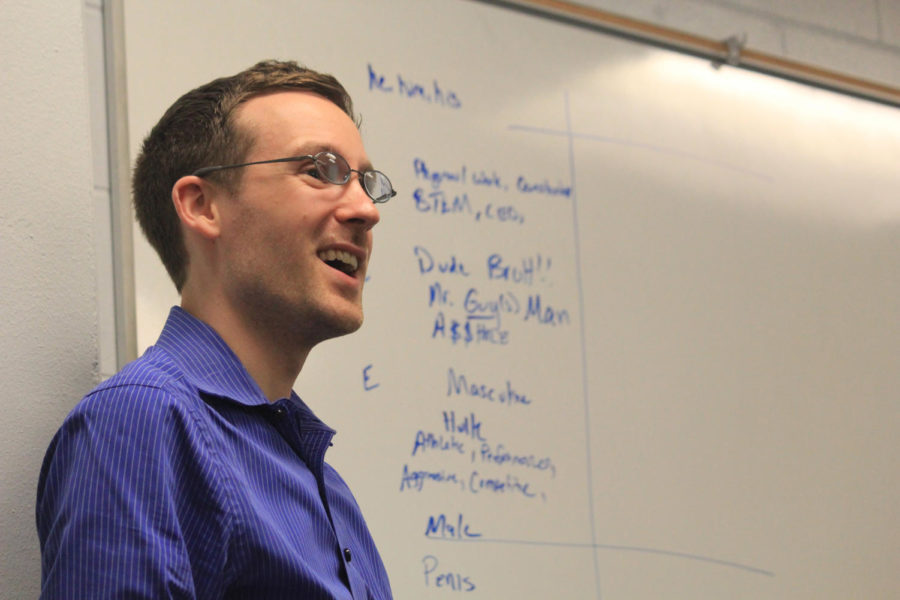Student safety must be a priority
Bradley Freihoefer, program coordinator, guides particiants at Safe Zone 101 training through strategies with interpersonal relationships on Oct. 7.
October 7, 2015
A student walks into the office of an ISU professor, needing to talk about feeling a lack of safety on campus. Over the course of the semester, said professor has noticed a change in the appearance of this student. At the start of the semester, this student appeared to be more masculine externally, but over the course of weeks began to add more feminine indicators.
The student tells the professor about the lack of safeness he is feeling, and the professor responds by referring the student to Lesbian, Gay, Bisexual and Transgender Student Services, assuming he’s feeling unsafe because of his gender identity.
But it turns out the student feels unsafe because the professor’s class ends later in the evening, and it’s dark outside by the time the student has to walk home, and the student has issues seeing at night.
Why did this professor automatically assume that a student, who is breaking social norms in terms of gender, is having issues dealing with his or her gender identity? Sadly, this is the current state of how culture views anyone in the LGBT community.
The ISD Editorial Board had the opportunity to sit down with Brad Freihoefer, the coordinator of LGBT Student Services, and this was one of the ways it demonstrated the discrimination students in the LGBT experience on our campus and in society as a whole.
Put simply, it needs to change. LGBT Student Services has actively participated in changing the way our campus addresses the conversation, but students outside of the LGBT and ally community need to participate as well.
In an attempt to educate Iowa State on how to create safe and inclusive spaces, LGBTSS provides Safe Zone Training for university faculty, staff and graduate assistants to help create a space for students in the LGBT community to go and not be in fear of discrimination. All university staff, faculty and graduate assistants are encouraged to attend and move our campus toward inclusivity. After completing the three-hour training session, attendees are awarded a placard to put outside of their office to indicate that their office is a “Safe Zone.”
However, during the 2014-2015 school year only about 100 out of Iowa State’s 16,268 employees attended the training. Granted, Freihoefer was the lone ranger in putting on the training, but more employees of the university should be taking steps to make all students feel safe, no matter how they themselves identify.
University employees are already mandatory reporters of any type of abuse to protect students. So why would more employees of the university not want to take the extra steps to provide another level of safety to LGBT students?
As a whole, society has made a conscious effort to raise awareness and promote inclusivity for the LGBT community. But, as Freihoefer says, there is still so much to be done.

















